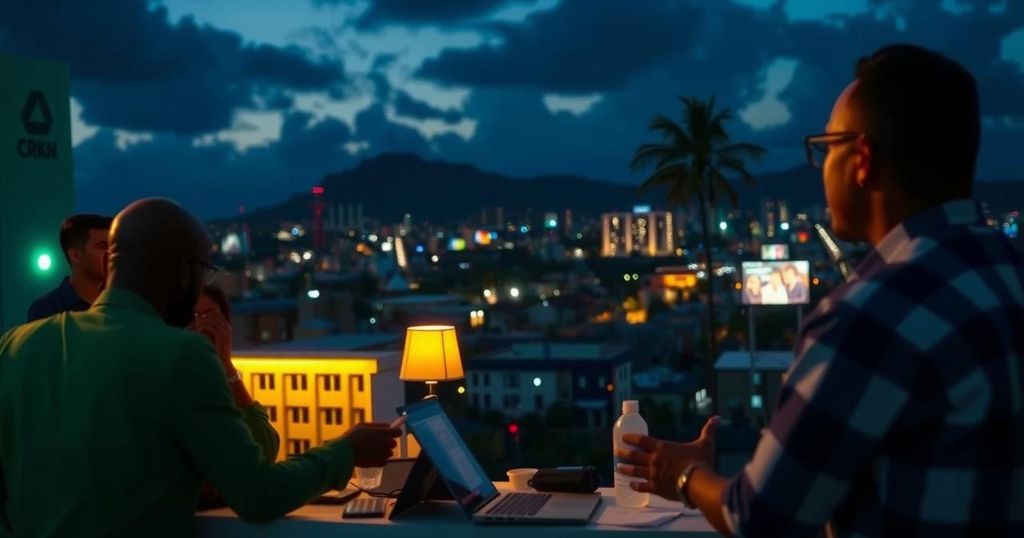Business
economics
Politics
AFRICA, ALLIANCE DU CHANGEMENT, ALLIANCE LEPEP, DAVID STAFFORD, DIEGO GARCIA, ECONOMY, FISCAL POLICY, GOVERNANCE, GOVERNMENT, INDIAN OCEAN, LINION REFORM ALLIANCE, MAURITIUS, NATIONAL ASSEMBLY, NAVIN RAMGOOLAM, PORT LOUIS, PR, REUTERS, ROSHI BHADAIN, SUBASH GOBINE
Marcus Li
0 Comments
Mauritius Elections Centered on Economic Challenges and Youth Engagement
Mauritius held a parliamentary election focused on the cost of living with Prime Minister Pravind Kumar Jugnauth and rivals promising various economic reforms. Polling opened at 7 a.m. local time, while concerns over social media restrictions were raised prior to the vote. Economic growth forecasts are positive, but many citizens report difficulty in experiencing benefits, prompting youth demand for innovative reforms and job opportunities.
The Republic of Mauritius conducted a parliamentary election focused on addressing the pressing issue of the cost of living crisis affecting its residents. Prime Minister Pravind Kumar Jugnauth and key opposition figures made commitments to alleviate economic concerns through initiatives such as raising minimum wages, enhancing pension plans, and reducing value-added tax (VAT) on essential goods. Polling places opened at 7 a.m. local time, with expectations for voter turnout amidst notable apprehension regarding economic conditions. The island nation, with a population of approximately 1.3 million, had projected a 6.5% economic growth rate for the current year, a decrease from 7.0% in 2023; however, many Mauritians expressed dissatisfaction with these economic forecasts and the resulting lifestyle impacts. The ruling Alliance Lepep coalition is banking on funds from a recent agreement with the United Kingdom, while opposition groups led by Navin Ramgoolam’s Alliance du Changement advocate for free transportation, improved internet access, and reduced fuel prices. Youth participation is anticipated to be significant in this electoral process, as the younger demographic is eager for economic reforms and job creation opportunities. The election process includes voting for 62 parliamentary seats from a diverse candidate pool comprising 68 parties and multiple coalitions. Concerns were raised regarding the government’s prior decision to block social media platforms, citing national security fears, which was later rescinded following public backlash. The outcome of the election will determine not only the parliamentary majority but also who will serve as prime minister, emphasizing the critical nature of this electoral event.
Mauritius is an archipelago in the Indian Ocean with a strategic economic position between Africa and Asia, bolstered by sectors such as offshore finance, textiles, and tourism. The recent parliamentary election reflects ongoing discontent among citizens about rising living costs, despite positive economic outlooks. Political campaign promises are centered around economic reform, demonstrating a strong focus on improving the quality of life for voters, particularly for the youth who are likely to influence the election’s outcome significantly.
The parliamentary election in Mauritius highlights the urgency of addressing the economic challenges faced by its populace. With both the ruling coalition and opposition showcasing various initiatives aimed at enhancing financial stability and public welfare, the electorate’s decision will fundamentally shape the country’s immediate economic landscape. Engaging the youth and responding to their needs could prove decisive in determining the future leadership of the nation.
Original Source: www.sowetanlive.co.za




Post Comment